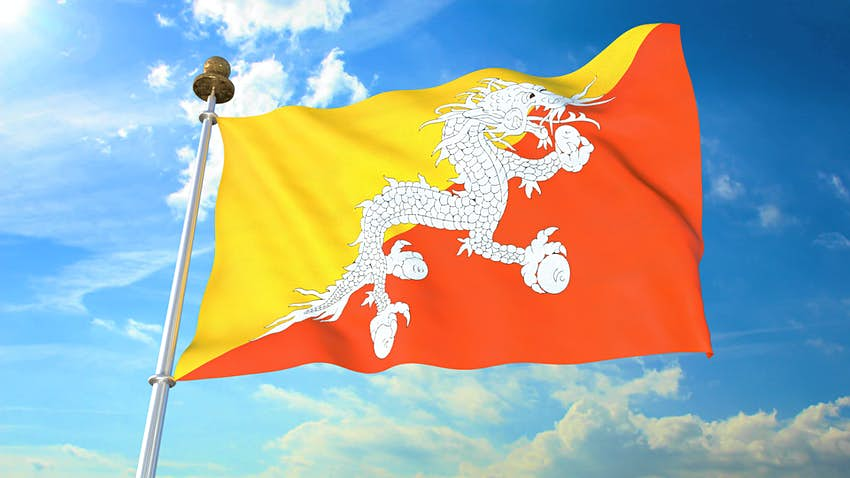Amid the growing military build-up by China, India is set to press the pedal on the Bangladesh-Bhutan-India Nepal (BBIN) initiative, envisaging closer connectivity among themselves through rail and road. The initiative can be a game changer in the region.
Analysts said that the project will be critical for India at a time when China is expanding its military and economic might through the multi-billion infrastructure project under the Belt and Road Initiative. In 2015, the BBIN Motor Vehicles Agreement (MVA) was signed after Pakistan objected to a Saarc (South Asian Association for Regional Cooperation) Motor Vehicle Agreement. While there has been a lull on the agreement, in February this year, a meeting on the proposed MVA was held in New Delhi.
Though Bhutan has decided to play an observer and not be a full-fledged part of the agreement, it has given a go-ahead to the project. However, sources said that New Delhi is keen to have Bhutan on board. Bhutan is not only a “dear friend” but also an important trade partner for India especially for hydroelectricity requirements, said Gopal Krishna Agarwal, BJP’s spokesperson on economic affairs. “The BBIN project is important for the region and we will expedite it.
Bhutan will play an important role and through this the country will get access to ports. The project is beneficial to all member countries which are closely linked to each other for trade and other economic co-operation. We are keen to give it shape since it will increase regional connectivity and increase trade and not because of other any external factors or countries,” Agarwal told IndiaNarrative.com.
The Australian Institute of International Affairs (AIIA) pointed out that unlike the previous governments, the NDA under Prime Minister Narendra Modi has increased its attention to Bhutan. “Modi chose to visit Bhutan as his first official diplomatic venture since his crushing election victory in May. This was notable because Bhutan had, during the previous Indian regime of prime minister Manmohan Singh, only featured in India’s priority zone as an aid receiver for regional diplomacy.
The impoverished Himalayan kingdom had never been a neighbour important enough to deserve the first encounter,” the AIIA, an independent, non-profit research organisation said. Bhutan, close to the “Chicken Neck” corridor, is strategically located nestled between China and India.
The Netherlands based European Foundation for South Asian Studies (EFSAS), in a report last month said that “maintaining and expanding its alliance with Bhutan is going to be of paramount importance for India as New Delhi will remain keen to prevent further Chinese incursions into Doklam and Bhutan more generally.” Realignments can have pivotal political implications for the region, with India seeing its relative dominance challenged by an increasingly regionally expansionist China, the report said. With China as the elephant in the room, India and Japan are making a conscious effort to establish structural linkages that would connect Bhutan with the Indo-Pacific region.
India, with Japan as partner has cleared the construction of the longest bridge over the Brahmaputra, that will connect landlocked Bhutan and Northeast India, with Dan Nang in Vietnam. With Bhutan at the back-end, the 19-kilometre Dhubri-Phulbari bridge connects Dhubri in Assam with Phulbari in Meghalaya. The flagship project, acquired sharp focus, after a 2018 agreement between India and the Japan International Cooperation Agency (JICA), for the infrastructure development of the north-east.
The gigantic effort will merge two parallel initiatives — the New Delhi-led India-Myanmar-Thailand trilateral highway and the East-West Economic Corridor (EWEC) marshalled by Japan in partnership with Thailand, Laos and Vietnam. The joint foray is a fusion of India’s ‘Act East’ policy and Japan’s ‘Free and Open Indo-Pacific’ strategy. From the Indian end, the trilateral highway starts in Manipur from the border town of Moreh, The Hindu reported.
On entering Myanmar, it heads for Mandalay, the historic city, on the east bank of the Irrawaddy River, 471 km away. From Mandalay, Myanmar’s last royal capital before B British annexation, the highway heads towards the Thai border, with Myawaddy being the last destination on the Myanmar side. Myanmar’s officialdom is emphatic that Myawaddy — the gateway to ASEAN — has huge potential as it can be easily connected with the Yangon deep water port, as well as the Andaman Sea. The 1,360-km route terminates at Mae Sot in Thailand, 20 km away to the northeast. Myawaddy is the junction of the two projects. It is the starting point of the East West Economic Corridor (EWEC), which heads towards Da Nang in Vietnam — a port city on the South China Sea..




















